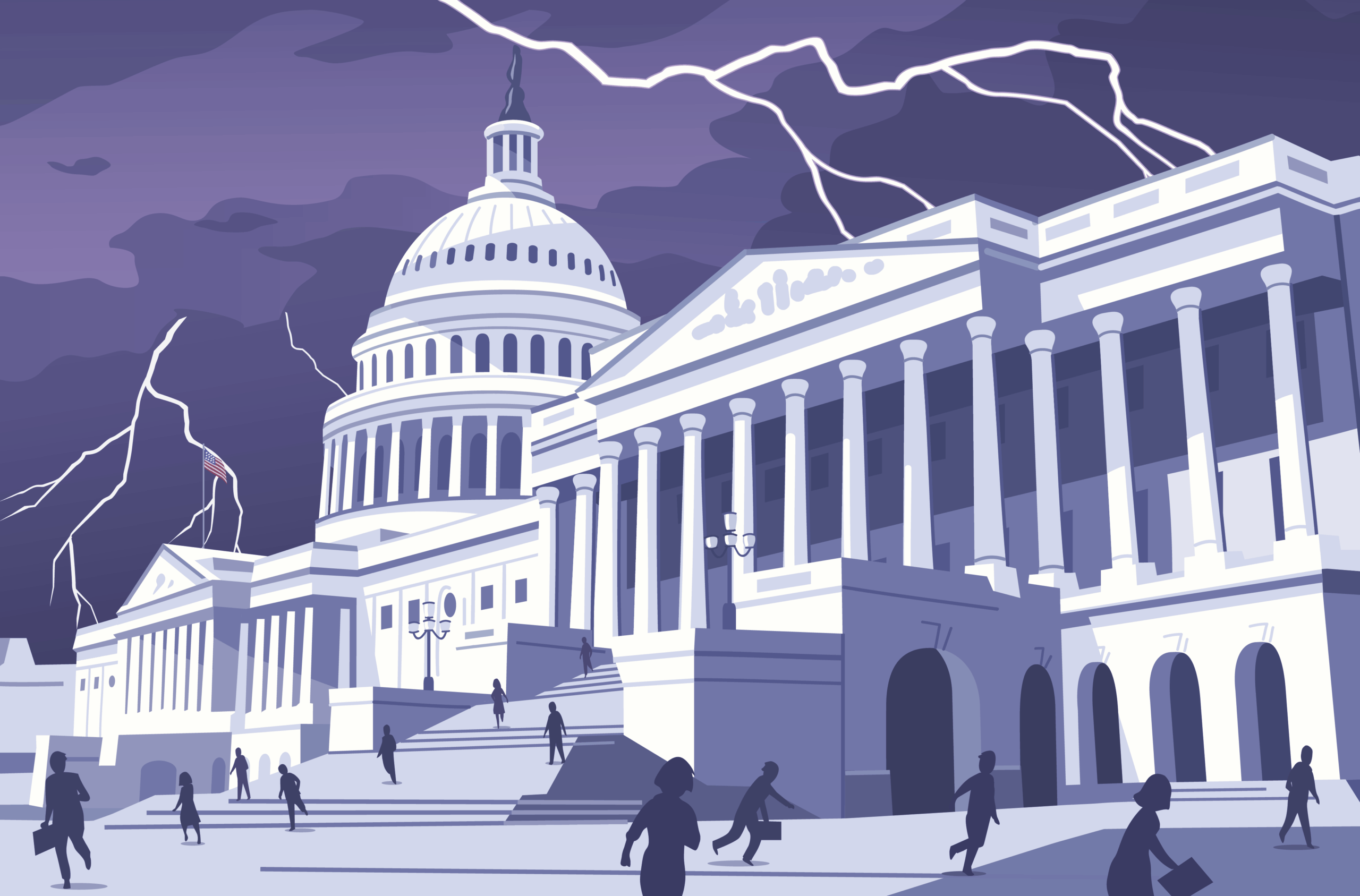
The Good, the Bad, and the Ugly September

The One Big Beautiful Bill Act (OBBBA) is now law.
Thanks to the legislation, most key 2017 Tax Cuts and Jobs Act (TCJA) provisions that were set to expire at the end of the year are permanent, including the suite of individual tax payment changes (lower marginal tax rates, increased standard deductions, and the increased child tax credit).
As with most every new law, OBBBA comes with upsides and downsides. What happens next might not be pretty.
The Good
Maintaining the exclusion from an employee’s taxable income of premiums paid for employer-sponsored healthcare insurance (ESI) is one of The Council’s top priorities. The U.S. Office of Management and Budget says ESI is the largest “tax expenditure” in the federal budget. (A tax expenditure is, essentially, any tax deduction or exclusion that reduces federal revenue.) It costs the U.S. government more than retirement plan contribution income tax exclusions or the more favorable capital gains tax rate, for example. That makes it low-hanging fiscal fruit for Congress because reducing or eliminating the tax expenditure creates revenues to fund new policy priorities. The OBBBA left ESI untouched.
The Council’s other OBBBA priorities all were included and made permanent:
- Extending the 199A 20% business income deduction for pass-throughs (partnerships, limited liability companies, and S corporations, primarily);
- Maintaining the Pass-Through Entity Tax (PTET) work-arounds that allow passthrough owners to bypass the federal, state, and local tax caps by paying state-level taxes at the entity level;
- Again basing the 163(j) interest 30% of business income cap on earnings before interest, taxes, depreciation, and amortization (EBITDA) rather than just earnings before interest and taxes (EBIT);
- Restoring the beneficial treatment of bonus depreciation; and
- Extending the safe harbor for pre-deductible reimbursement of telehealth services under high deductible health plan/health savings account coverage.
Two victories warrant additional discussion:
199A. Extension of the 199A deduction for pass-through qualified business income that was set to expire at the end of this year was The Council’s largest affirmative priority. This provision was enacted in the TCJA to equalize the rate these entities pay in taxes (generally at the highest individual marginal tax rate of 37%) with the reduced 21% corporate rate paid by C corporations.
Permanent extension prevents owners of partnerships and S corporations from facing higher taxes and provides a level playing field with C corporations. Section 199A excludes certain trades or businesses, known as specified service trades and businesses (SSTB), from claiming the deduction. In 2019, the U.S. Department of the Treasury issued regulations affirming that businesses involved in insurance brokerage services are not SSTBs and are fully eligible for the Section 199A deduction. The OBBBA also does not change this definition.
163(j). Prior to the TCJA, there was no cap on the amount of interest a business could deduct as an expense. That 2017 law limited the deductibility of interest to 30% of a business’s “qualified income.” From 2018 to 2021, the TCJA defined qualified income as a business’s EBITDA. For 2022 and after, it reduced the cap to 30% of EBIT. The OBBBA restores the deduction cap to 30% of full EBITDA. This likely will benefit growth companies that principally rely on debt financing, like many Council member firms.
The Bad
The OBBBA’s impact on the healthcare system is likely to be negative in two respects.
First, the Congressional Budget Office (CBO) says the OBBBA features the largest federal health spending reduction in history. It includes a set of changes to Medicaid eligibility for those who were able to enroll in states that adopted the Affordable Care Act’s (ACA) expansion provisions—imposing, for example, work and more frequent eligibility determination requirements for those enrollees. CBO estimates that those Medicaid program changes, combined with the OBBBA’s ACA exchange funding reductions, will leave more than 10 million more people uninsured over the next decade.
Second, the expanded ACA premium tax credits enacted as part of the American Rescue Plan Act (ARPA) are set to expire at the end of 2025. CBO estimates that would increase the number of uninsured by 4.2 million by 2034. The OBBBA did not address this issue.
The Ugly
The federal fiscal year ends on Sept. 30. By then, Congress must enact new appropriations bills to fund the government for the next fiscal year or pass a continuing resolution that, essentially, appropriates money under the prior year’s framework until a specified date or until new spending measures are enacted.
The OBBBA was enacted through “reconciliation,” which enables a simple majority to pass budget legislation in the Senate as opposed to the 60-vote threshold that normally must be satisfied to overcome a filibuster and enact any other bill. No Democrat voted for the OBBBA.
Both parties have used reconciliation in the not-too-distant past to enact policy priorities, including all three laws referenced above—the Affordable Care Act during the Obama administration, the Tax Cuts and Jobs Act during Trump 1.0, and the American Rescue Plan Act during the Biden administration.
In the normal course of legislative business, the minority party has bounced back from those partisan efforts to engage productively—for example, supporting appropriations or continuing resolution measures in sufficient numbers to ensure passage.
The current moment is, however, anything but normal. Congress recently enacted a rescission bill that pulled back $9 billion in previously appropriated money in accordance with the administration’s desire to reduce spending on specified activities, notably the United States Agency for International Development and the Corporation for Public Broadcasting. Under the applicable rules, rescission measures may be approved by a simple majority in the Senate; no Democrats voted for the legislation.
Democrats assert that they will not support any current appropriation measures or a continuing resolution because anything that is included that the administration or congressional Republicans do not support could simply be rescinded later.
That said, Democrats likely would support an appropriations package that rescinded many of the OBBBA Medicaid provisions and restored the ACA premium subsidies provided that sufficient recission protections were built in to assuage concerns. Many—maybe even most—House and Senate Republicans would support such a package, leaving the most conservative Republican members opposed. That would not be new; a coalition of more moderate Republicans and Democrats worked together on these types of budget issues throughout the first Trump administration to keep the government open.
If House and Senate Republican leadership cannot support such a bipartisan package, they may consider the nuclear option—using a simple majority vote to, essentially, change the applicable 60-vote filibuster threshold. Senate judicial and executive branch appointee confirmations are now subject to such a majority vote requirement because of the use of this tactic (first by the Democrats to remove the 60-vote requirement for lower court judges and executive branch nominees and later by the Republicans to remove the requirement for Supreme Court justices).
Senate Democrats seriously considered imposing expanded limitations on the filibuster rules in the last administration, but public opposition from then-senators Kyrsten Sinema (D-Ariz.) and Joe Manchin (D-W.Va.) made it impossible to muster the 51 necessary votes.
Republicans could lose three senators and still enact the change (with Vice President JD Vance acting as the tie-breaking vote). GOP Sens. Susan Collins (R-Maine), Lisa Murkowski (R-Alaska), and Mitch McConnell (R-Ky.) are already publicly opposed.
That leaves the question of whether a fourth Republican could doom the effort. It could be Sen. Thom Tillis (R-N.C.), who announced that he would not seek a new term in part because he opposed the OBBBA Medicaid changes he believed would be incredibly detrimental to his state. Tillis would like those Medicaid changes rescinded and his lame duck status liberates him to vote as he pleases.
It is going to be an interesting—and potentially very ugly—September in the nation’s capital. Buckle up.




